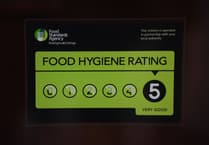A neonicotinoid pesticide banned because of the harm it can cause bees has been given a conditional emergency approval by the UK government for use in sugar beet production, for the fourth year in a row.
Permission to use the neonicotinoid on sugar beet seeds is described by the Department for Environment, Food and Rural Affairs (Defra) as a “necessary and proportionate measure” in response to the need to confront a deadly virus spread by aphids. The disease virus yellows and is spread mainly by aphids and has been devastating to the UK sugar beet crop.
Other European sugar-producing countries have similar authorisations in place.
It may not be obvious to people in Surrey, but sugar beet is a vital national crop. As one who grew up living on the edge of the fens where much of the land was given over to sugar beet production, I appreciate that this staple crop is essential to the livelihoods of many across a wide area, both in farming and industrial sugar production.
Neonicotinoids were banned in April 2018 across the EU. Since then, sugar-beet growers across the continent have suffered serious yield losses, as other treatments are not as effective in controlling viruses.
The UK threshold to allow neonicotinoid treatment is a 65 per cent infection across the national sugar beet crop by March, as assessed by an independent, scientifically-verified level of threat.
The UK is not alone: 12 large EU sugar-producing countries have granted similar emergency authorisations in recent years for neonicotinoid seed treatments to be used on sugar beet.
The news has been welcomed by British Sugar, which says sugar beet provides 60 per cent of the UK’s sugar, but it has sparked outrage from environmental campaigners. Barnaby Coupe, land use policy manager at the Wildlife Trusts, said: “The farming minister’s decision to authorise the use of a banned neonicotinoid pesticide on sugar beet for the fourth year in a row is a death blow for wildlife.
“It is entirely possible to produce food in a way that helps rather than harms nature – and UK farmers know that the use of this chemical is not a long-term solution.”
Defra says emergency pesticide authorisations are granted for only a limited time in circumstances “where there is a danger that cannot be contained by any other reasonable means”. Sugar -beet plants are harvested before they flower so it says there is “little risk arising from bees foraging on pollen and nectar of the sugar beet crop”.
Research has been taking place into a treatment that will not harm insect life. British Sugar has hoped this would be available by 2024 and now hopes it will be available commercially by 2026.




